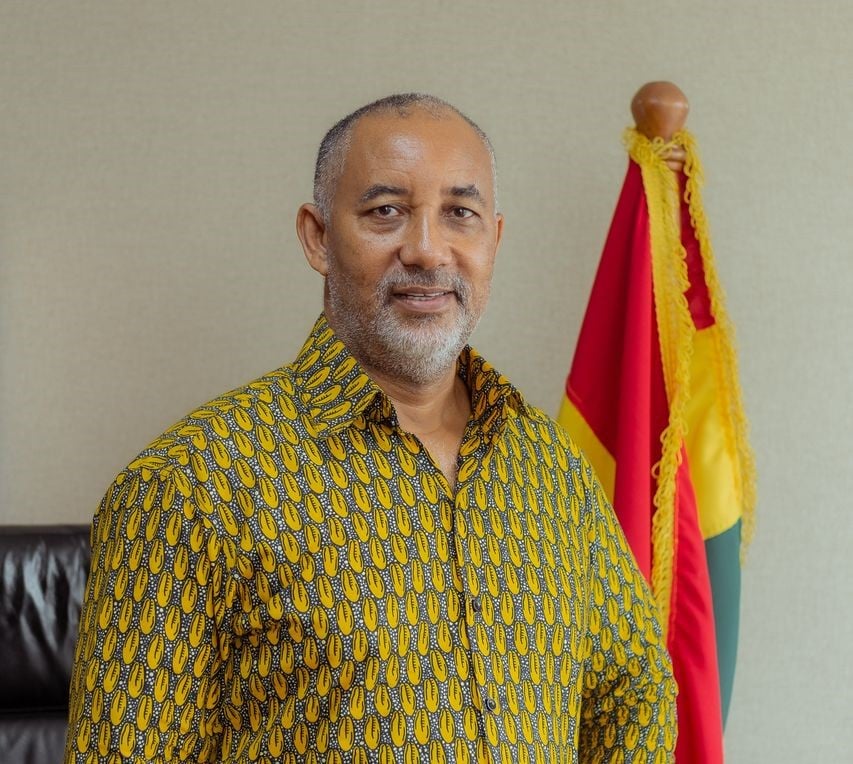
…a cause for concern
Ghana’s recent ranking as the 9th most financially secretive country in Africa, according to the Tax Justice Network’s Financial Secrecy Index (FSI) 2022, brings to light the complexities surrounding financial secrecy and its impact on global financial systems. The FSI utilizes a combination of qualitative and quantitative data to measure each jurisdiction’s contribution to the global issue of financial secrecy, shedding light on the level of opacity, compliance with international norms, and engagement in information sharing.
Understanding the Financial Secrecy Index
The Financial Secrecy Index is meticulously crafted, combining qualitative data derived from laws, regulations, and cooperation with information exchange processes. This data forms the secrecy score for each jurisdiction, with higher scores indicating increased opacity, reduced engagement in information sharing, and lower compliance with anti-money laundering norms. The index also incorporates quantitative data, weighing each jurisdiction based on its share of offshore financial services activity in the global total.
Financial Secrecy and Its Ramifications
Financial secrecy is a term that encompasses various practices and policies that allow individuals to conceal their financial activities from regulatory authorities. The implications of such secrecy are far-reaching, as it not only facilitates tax evasion but also provides a breeding ground for money laundering and corruption. The Tax Justice Network’s index serves as a stark reminder of the challenges that Ghana faces in combatting these illicit financial practices.
From “Tax Haven” to “Secrecy Jurisdiction”
The term “tax haven” lacks a consistent and agreed-upon definition, contributing to debates around offshore tax evasion and illicit financial flows. The FSI addresses this by replacing “tax haven” with “secrecy jurisdiction,” defined as a jurisdiction providing facilities enabling individuals or entities to escape or undermine the laws, rules, and regulations of other jurisdictions using secrecy as a primary tool. The FSI introduces 20 verifiable indicators (Secrecy Indicators) to assess the degree of legal and regulatory contribution to secrecy, with scores ranging from 0 (full transparency) to 100 (full secrecy).
Ghana’s Position in the Financial Secrecy Index 2022
Ghana’s placement in the Financial Secrecy Index 2022 has brought to the forefront the glaring deficiencies in the government’s efforts to address financial opacity, particularly in the midst of an election year. The compound secrecy score, ranging from 35.87 points (comparable to Slovenia) to 80.87 points (resembling Vietnam), paints a disconcerting picture of significant opacity within the country’s financial systems. This revelation gains added significance as Ghana approaches a crucial election, shining a spotlight on the potential exploitation of financial secrecy by individuals within the government for personal gain. The Financial Secrecy Index sheds light on the potential risks associated with illicit financial flows in Ghana, signalling that the country’s financial landscape may be susceptible to activities that undermine economic stability and social progress. During an election year, this revelation assumes even greater importance as citizens evaluate the performance of their government and make informed choices about the future leadership of the nation.
Conclusion
In conclusion, Ghana’s ranking as the 9th most financially secretive country in Africa, according to the Tax Justice Network’s Financial Secrecy Index 2022, presents a multifaceted challenge with far-reaching implications. The compound secrecy score, ranging from 35.87 to 80.87 points, highlights a significant degree of opacity within the nation’s financial systems, triggering concerns about potential illicit financial flows. As the country navigates an election year, this revelation takes on added significance, prompting a critical examination of both systemic issues and the actions of individuals within the government.
The Financial Secrecy Index serves as a powerful tool, shedding light on the intricacies of financial opacity, tax abuse, money laundering, and their adverse effects on human rights and socio-economic development. Ghana’s position in this index underscores the urgent need for regulatory reforms, enhanced transparency measures, and a resolute commitment to combating illicit financial activities. The index not only calls attention to the deficiencies in existing frameworks but also demands accountability from the government in ensuring that public resources are safeguarded for the benefit of all citizens.
The opacity identified in the Financial Secrecy Index raises questions about the government’s effectiveness in addressing these systemic issues and its commitment to combating financial malfeasance. Particularly concerning is the potential exploitation of financial secrecy by individuals within the government for personal gain, a matter that warrants thorough investigation and scrutiny, especially during an election year when citizens are poised to make critical decisions about the nation’s leadership.
The gravity of the situation necessitates a collective response from government institutions, civil society organizations, the media, and the electorate. Political candidates must articulate clear strategies for addressing financial opacity, ensuring transparency, and implementing reforms that strengthen the resilience of the financial sector against illicit practices. Civil society organizations and the media play a pivotal role as watchdogs, advocating for accountability and fostering informed public debates that transcend the election season.
Ultimately, Ghana’s journey toward dismantling financial opacity requires a comprehensive and sustained effort. The outcome of the election will play a crucial role in shaping the nation’s future trajectory in terms of financial transparency, accountability, and responsible governance. The Financial Secrecy Index, while highlighting challenges, also serves as a catalyst for positive change by inspiring dialogue, fostering awareness, and encouraging a commitment to building a financial system that aligns with the principles of justice, fairness, and the common good.
The post SMEs series with Korsi DZOKOTO: The growing financial secrecy appeared first on The Business & Financial Times.
Read Full Story





















Facebook
Twitter
Pinterest
Instagram
Google+
YouTube
LinkedIn
RSS